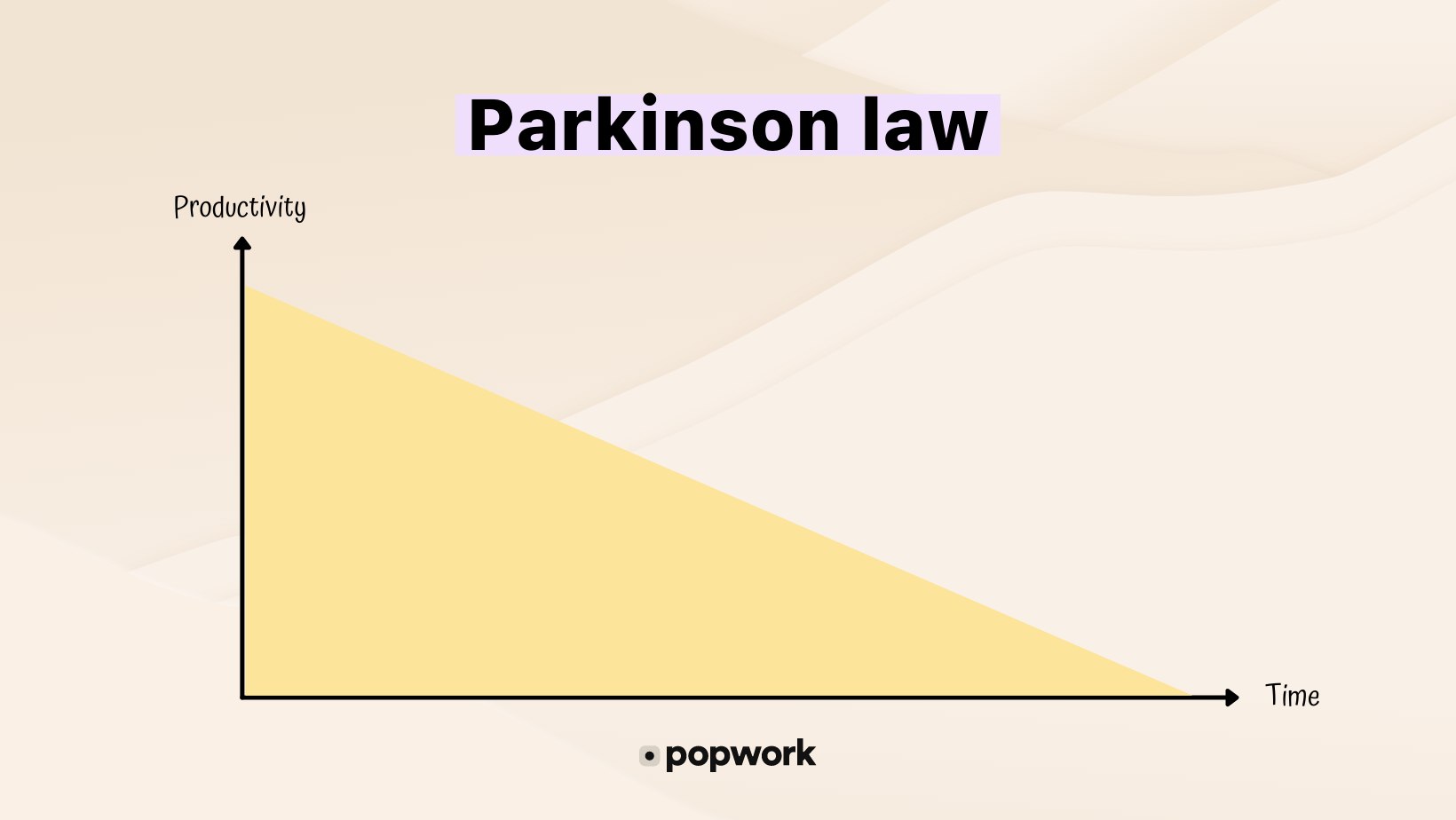For four years, from 2015 to 2019, 2,500 Icelanders (1% of the population) worked 35 hours per week instead of 40 hours, over four days, with no change in pay. Productivity has not decreased. On the contrary in some cases, productivity would have even increased!
So what if we worked less, but better, like in Iceland? Since this first experience, other countries, such as Japan and Spain have tested the idea. During the summer of 2019, 2,300 employees of Microsoft Japan tested the 4-day week, and at the same time saw their meetings limited to 30 minutes and 5 participants. Result of the experience: 40% more productivity and a feeling of well-being at work for 92% of participants.
This productivity should come as no surprise to those who have heard of Parkinson's law. This law is the adage that work expands so as to fill the time available for its completion. That is, if you set a time limit of one month to complete a job that can be done in a week, it will actually take a month to complete.

Where did this Parkinson's law come from and how does it impact our work? How to be more effective in 4 days than in 5?
Parkinson's law or the law of work that expands
Parkinson's law was first introduced in an article for The Economist published in 1955, Parkinson's law was more recently democratized by best-selling American author Tim Ferris in his book The 4-Hour Week published in 2008. This law according to which work complicates and expands to fill the available time.
To theorize this law, the British historian and essayist Parkinson used his experience in administration. In the article published in The Economist, he explains why bureaucracy is inefficient. We learn that the civil servants he observed tend to multiply their subordinates and that this multiplication of collaborators necessarily gives rise to an additional workload, since it is then necessary to manage and train these new people. It's a vicious circle: the more the workload increases, the more their recruitment needs grow. As a result, officials create more work for each other with no connection to the actual volume of work.
How to limit the effects of Parkinson's law to be more effective?

So how do you keep work from expanding forever?
- Set realistic (and ambitious) deadlines. When giving a task or a project to your team, you must give a clear deadline. To do so, managers must do their best to estimate the amount of time and work that the project requires. Don't hesitate to limit meetings to a maximum of 20 or 30 minutes. If your manager does not give you a specific deadline (e.g. “within the month”), ask him to set a deadline. This will allow you to organize and motivate yourself.
- Do not think in terms of tasks to be performed but rather define clear objectives, for example by using the SMART methodology.
- Trust your team members and give them enough autonomy. If you set goals for your team but they know you will keep checking what they do and micromanaging them, they will rely on you forever. Empower them by learning to delegate better, and everyone will save time!
- Set up the right management rituals on the day-to-day such as weekly 1:1 meetings, regular team meetings and monthly step back meetings.
These tips may lead you someday to testing the four-day week. Although it is not suitable for all companies, Welcome to the Jungle, the employment platform and online media, has decided to embrace the 4-day week in 2019. However, if the trial is a success, it is because the company organized the transition ver carefully and set up certain rules to support the change:
- employees must decide their day off - Wednesday or Friday - and stick to it throughout the year.
- a whole team cannot be off on the same day: 50% of the team must be there on Wednesday or Friday.
- the company has adapted to the changes by modifying the roles in the teams, the tasks of team members or their priorities.
- meetings are now more efficient: weekly meetings are now held every two weeks and employees must be well prepared for them.
- this new organization of work is supported by new tools and the optimization of certain processes. Managers must explain the added value of the tools they choose to their team so that they actually use them efficiently. For example, Business teams are using Popwork to prepare their weekly 1: 1 meetings and follow up on their objectives every month.
- Finally, everything must be done so that customers are not impacted by the new organization.
“We have become more responsible of our agendas. We actually regained control over them.” the Welcome to the Jungle team says to Usbek and Rika.

